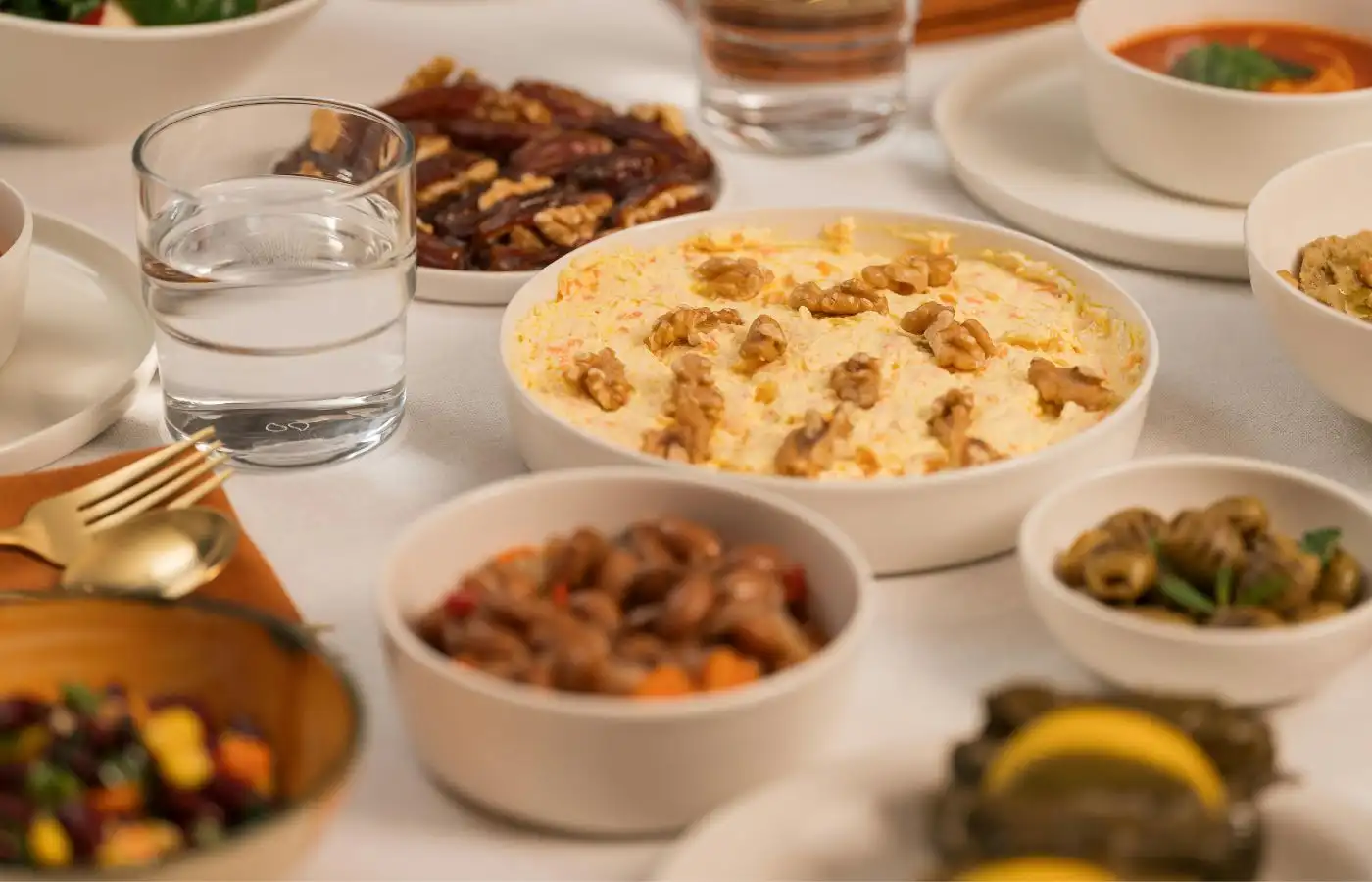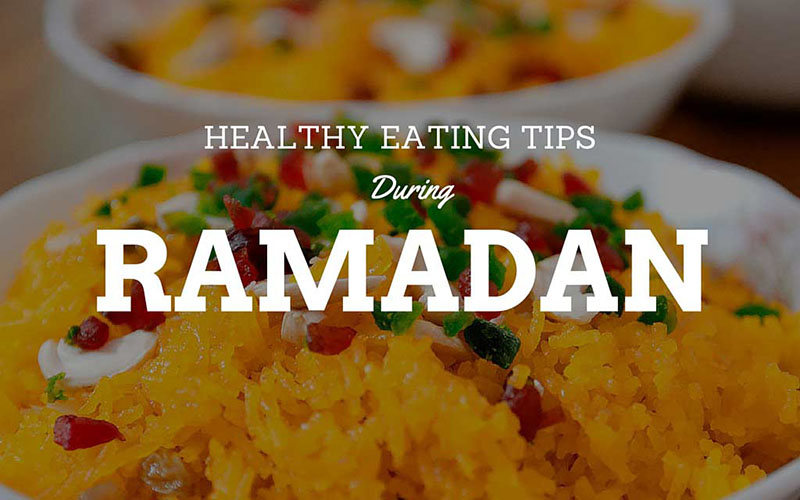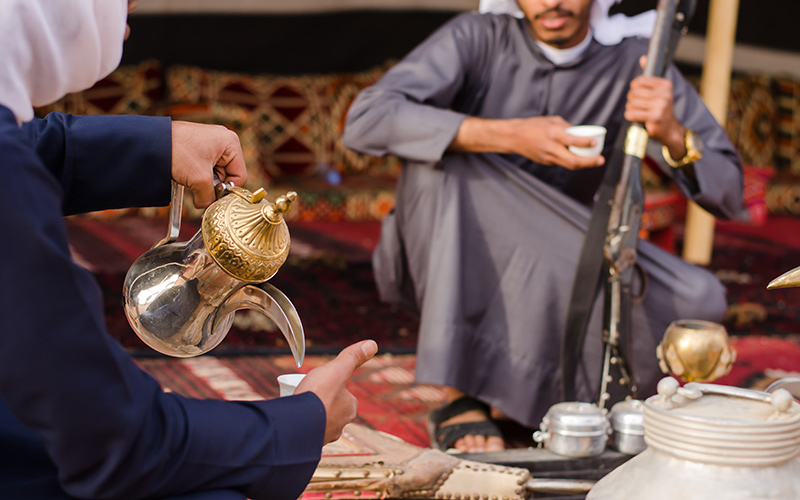Ramadan is the ninth month of the Hijri, or Islamic calendar. Now that this holy month is underway, Muslims all over the world look forward to strengthening their faith and reviving their body and spirit through the observance of fasting. Fasting is one of the five core pillars of Islam; it is when Muslims abstain from eating, drinking, smoking, and engaging in all kinds of sensual pleasures from dawn to dusk for the entire month.
Fasting in Ramadan, however, is not all about spiritual cleansing. From improved metabolism and enhanced cognitive performance to weight loss and detoxification of the digestive system, it also offers numerous significant health benefits. But whether or not you benefit from it largely depends on what you eat during Ramadan. The whole day of fasting includes indulgence in two meals: the Suhoor and the Iftar. While Suhoor is the pre-dawn meal, Iftar is enjoyed after the entire day’s fasting in the evening at dusk.
The idea behind eating Suhoor is to provide the body with the energy to fast for the entire day. The Iftar is served post-sunset to break the fast and to give the tired and exhausted body the indulgence of good nourished food after the whole day. If you are looking to make the most of this blessed month, here are some healthy tips to practice during Ramadan.
Ramadan in Dubai in Dubai is expected to start on 1st March and will last until 30th March 2025. The dates heavily depend on lunar sightings. Hence, the exact dates are interpreted differently and usually announced a few weeks before the predicted dates.
Follow These Healthy Tips During Ramadan
1. Have energy-boosting food at Suhoor
Suhoor becomes the most important meal of the day, as it will take you through the whole day. While a good Suhoor will keep you going throughout the day, a heavy or unbalanced Suhoor will give you hunger pangs and a sluggish feel the whole day and keep you waiting for the Iftar.
- Eat protein-rich food in the morning. Protein not only delays hunger pangs but also provides lots of energy for the day.
- Provide hydration for your body partially through food as well. Opt for fruits and veggies with high water content, like cucumbers, tomatoes, lettuce, oranges, and watermelon.
- High-fiber and carbohydrate food items, such as whole-meal bread and brown rice, take longer to digest and hence keep you full for a longer time.
- Go high on protein but low on fat. Fish, low-fat dairy products, and lean meat foods should be your go-to alternatives to feisty-fat meals.
- Intake of fiber-rich fruits at the start of the day can prevent constipation, a common problem during Ramadan. Also, they are full of vitamins, phytochemicals, and minerals to keep you energized the whole day.
2. Keep Yourself Hydrated
Drinking plenty of water and eating healthy during Ramadan is of crucial importance. Avoid sugary and caffeine stuff as much as possible. They may look like an enticing option during Suhoor but will add to your thirst during the day. Make sure you drink plenty of water at Suhoor to keep yourself hydrated.
- Don’t break your routine of drinking at least eight glasses of water daily. Divide these between the times of Suhoor and Iftar, but maintain your ritual of drinking adequate water.
- Suhoor must include fresh fruits, veggies, or just plain water instead of sweetened drinks.
- Avoid eating hot and spicy food, as it increases your thirst during the day.
- You can keep a bottle of water by your bedside to sip at night.
3. Keep Yourself Busy
The key is to keep your daily routine as normal as you can. Ramadan is all about fasting to become closer to Allah (Almighty); don’t make it all about you by staying lazy and disrupting your routine. Staying active not only helps you pass your day easily but also helps manage the disturbed body mechanisms caused by the lack of food.
- Sleep plays a vital role in shaping your day during Ramadan. Sleep on time to keep yourself active, fit, and energetic during the day.
- Sipping water at least every two hours post-Iftar will help you stay active the next day. A hydrated body won’t make you look pale and dull.
- Don’t spend the entire day thinking about fasting. The more you think about fasting, the hungrier you’ll feel. It’s natural psychology. Keep yourself immersed in your daily routine, prayers, and Quran recitation; don’t let your mind play tricks with you.
4. Don’t Skip Your Exercise Routine
If you are into regular exercise, don’t stop it just because you are observing a fast. It will reduce the steady energy flow to your body and make you feel sluggish. Instead, if you are into heavy workouts, reduce the intensity. Sticking to brisk walking, jogging and light to moderate exercise is ideal.
- Remember, your body maintains muscle mass only if you keep giving it instructions through regular workouts. Stopping them will increase the mass and make you feel heavier.
- Carbohydrates help you work out with increased intensity. During Ramadan, your carb levels deplete; therefore, it is natural to reduce your workout intensity and take it slow.
- Include some carbohydrates during your Suhoor to give you the required energy at the time of the workout.
- If you are into a regular high-intensity workout or taking Ramadan as an opportunity to start working out, try and do your exercise before the Iftar. It will help you compensate for the lost energy and water requirements post-exercise.
- Avoid exercising immediately after the Iftar meal. The entire blood flow at that time is concentrated on your stomach, so it is not advised.
5. Break your Fast Slowly and Lightly
It’s a common complaint that despite observing the whole month’s fast, there are many people who gain weight during Ramadan. The reason is that what you eat at Iftar is usually more than what you eat on a regular day.
- Don’t overindulge in the Iftar meal. Although tempting, it is better to take it slowly. Your body is already going through a disturbed routine, and if you suddenly stuff it with oily, fatty, and heavy food after going hungry for 12-14 hours, it’s not going to have a good effect.
- Exercise some self-control and eat normal-sized, nutritious portions at Iftar. Eat in moderate quantities every 2 hours after Iftar, and you’ll see its benefits the next day.
- Start your Iftar meal by eating two dates. It balances the low sugar level in your body due to the fast of the whole day and helps you gain instant energy.
- Starting with a bowl of soup is great, as it not only prepares the stomach for the upcoming meal but also gives the body the essential fluids it needs.
- It’s difficult, but eat fewer sweets at Iftar. Too much sugar after a whole day of fasting is not good for the body. It’s of crucial importance since you’re fasting the next day.
- Also, sticking to the iftar and suhoor meal menus is healthier than trying to binge on processed foods.
Conclusion
Everything you eat at Iftar and Suhoor shows up in your energy levels the next day. So, make the most of the eating time during Suhoor and Iftar and give yourself both a healthy and spiritual makeover this Ramadan.
Check out our guide on the top things to do for Eid Al Fitr in Dubai.
FAQs
1. What is Ramadan?
2. Is fasting safe?
3. What are the top tips for healthy fasting in Ramadan?
- Eat a balanced meal (with meat, grains, fruits, vegetables, etc.) during Suhoor and Iftar, ensuring adequate sources of protein, fibre, and carbohydrates.
- Drink plenty of water.
- Avoid increased consumption of carbonated and caffeinated drinks.
- Don’t skip healthy workout sessions.
4. Is fasting during Ramadan in Dubai mandatory for non-Muslims?
5. What are the top places to experience Iftar and Suhoor in Dubai?





Thank you, this article is quite good and useful for readers.